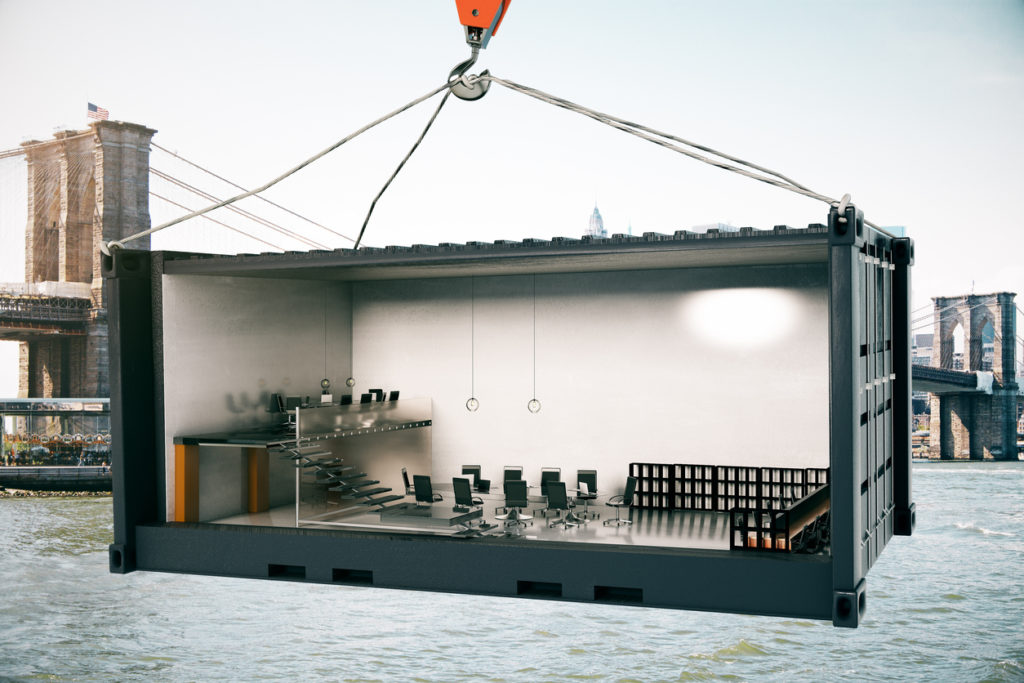4 Essential Tips for Your Shipping Container Office
Using a shipping container as a home office is a smart and affordable solution. You get the space you need without the hefty price tag of a traditional office, plus the privacy of working away from the main house.
Shipping containers come in various sizes, with the most common being 20 ft and 40 ft options. A 20 ft container is perfect for a compact office setup, providing enough room for a desk, chair, and storage without taking up too much space in your yard. If you need a larger workspace or want to add features like a conference area or extra storage, a 40 ft container offers more flexibility.
If you’re thinking of setting up your own container office, here are four practical tips to get you started.
1. Make Sure Your Container is Fully Equipped
You don’t want to waste time and money trying to install basics after the fact. Make sure your container comes equipped with essentials like air conditioning, heating, and plenty of electrical outlets. Some vendors even offer extras like desks, plan tables, and filing cabinets, so ask about those options upfront. Having your container fully set up from day one saves you from headaches later on.
2. Consider HVAC and Plumbing Systems
If you plan to spend long hours in your office or use it year-round, you’ll need more than just basic ventilation. Think about installing an HVAC system to keep things cool in summer and warm in winter. Plumbing might also be worth considering—whether it’s just a sink and toilet for convenience or something more extensive if you’re sharing the space with others.
3. Install Large Windows
Natural light can make a huge difference in your workspace. Installing extra or larger windows will not only brighten up your office but also make it feel more open and welcoming. This is especially important if you work with detailed plans or documents. Plus, a well-lit space boosts productivity and mood, making your workday more enjoyable.
4. Maximize Storage Space
Space in a shipping container can be limited, so smart storage solutions are key. Instead of bulky filing cabinets that take up floor space, consider built-in shelves or overhead cabinets. This keeps everything organized and leaves more room for you to move around.
Frequently Asked Questions About Shipping Container Home Offices
Are shipping containers a good investment?
Yes, shipping containers can be a great investment for things like storage, construction, or converting into home offices. As with any investment, it’s important to check the condition and consider the long-term potential.
What are the downsides of container homes?
Container homes can face challenges like condensation, insulation, and zoning regulations. Space may also be limited, but with the right planning, these issues can be managed.
Why do people rent shipping containers?
People often rent containers for temporary storage, moving, construction projects, or events. They provide a secure and portable storage solution.
Is a container home or office a good investment?
Container homes and offices are often more affordable and eco-friendly than traditional options, but the resale value can depend on your location and market trends. Make sure to account for local regulations and customization costs.
How long can a container home or office last?
With proper care and insulation, your container can last 25-40 years or longer. Regular maintenance and corrosion prevention will help extend its life.
Can a container office last 50 years?
Yes, it’s possible! However, it requires diligent upkeep and using a high-quality container from the start.
Is building a container home or office less expensive?
In many cases, yes. Building a container home or office is often more affordable, but costs can add up depending on modifications and local building rules.
Contact Container King
Want to learn more about buying a shipping container for your home office or renting a mobile office trailer? Contact Container King in Sanger, Ross, or Dallas. We’re open Monday through Friday from 8 a.m. to 5 p.m., and Saturdays from 9 a.m. to noon.



